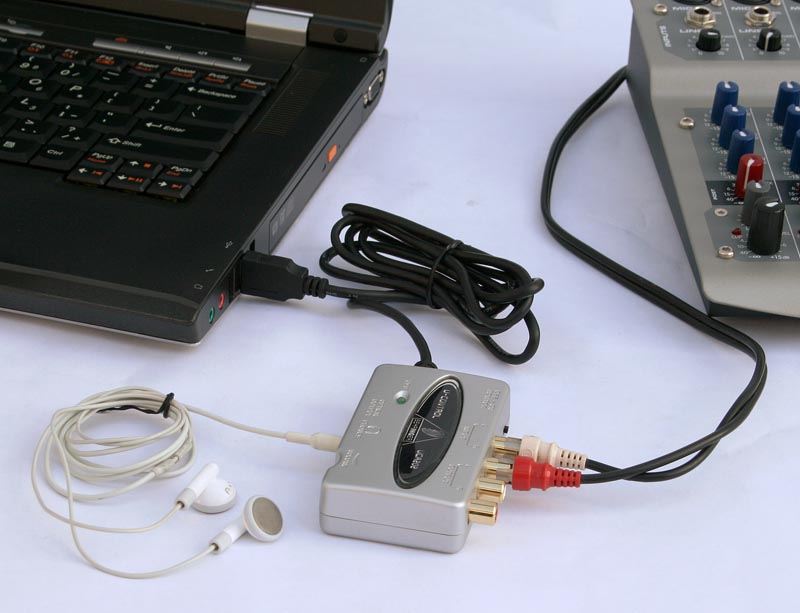Okay, you’re pulling my leg a bit here. English is not my motherlanguage, and I am very willing to spend time to assist and help, but please understand that my terminology is not completely conform your knowledge of the English language. Above all, I use the Dutch version of Audacity. Then again, thanks for your assistance.
Anyway, back to business. I will try to reply to your remarks one by one.
Soundcloud recording
All I can say about the “bangs” (I called them cracks / static pops), is that they were coming from Audacity. I’m not making them up. They weren’t in the original recorded audio. I will replace the audio file on Soundcloud with a new one, I just reopened the project as I write. This time I will record from the laptop speakers in stead of the headphones.
I’ve put a new recording online. In the first part (audio interview) I just let the audio roll, every 5 seconds the “crack” is heard. In the second part (the crazy free jazz track) I skip through the audacity project. Every time the audio starts to play, the sound is heard. If I turn down the volume, the crack also goes down in volume. When turned up, the volume of the crack goes likewise. I didn’t get the beeps this time.
https://soundcloud.com/muziektaal/cracks-during-playback-in-audicity/s-8IBas
Reproducing steps
Of course I can send you the project file! I already offered, but I don’t have any address to send it to. Or I don’t know a place to put it.
I converted to mono by selecting different audio parts on one track and then Chose
Tracks (Sporen) => From stereo to mono (Van stereo naar mono).
Beeps
I’m indeed suggesting that it isn’t an editing problem. I suppose it is the way Audacity handles and sends out audio from these specific audio “packages”. Something in the project files makes Audacity behave as such. I thought the ‘audio block file’ had a length of 6 seconds? That’s why I counted the length of it. Please note, that by skipping through the track, everytime the audio starts playing, this “crack” is heard.
Layout
I don’t understand this part of your explanation. The problem returned in a different track layout (i.e. another project that I specially created for troubleshooting). Perhaps this is what you mean.
Audio device information
==============================
Default capture device number: 4
Default playback device number: 4
==============================
Device ID: 0
Device name: HD-Audio Generic: HDMI 0 (hw:0,3)
Host name: ALSA
Input channels: 0
Output channels: 8
Low Input Latency: -1,000000
Low Output Latency: 0,005805
High Input Latency: -1,000000
High Output Latency: 0,034830
Supported Rates:
32000
44100
48000
88200
96000
176400
192000
==============================
Device ID: 1
Device name: HD-Audio Generic: ALC269VB Analog (hw:1,0)
Host name: ALSA
Input channels: 2
Output channels: 2
Low Input Latency: 0,005805
Low Output Latency: 0,005805
High Input Latency: 0,034830
High Output Latency: 0,034830
Supported Rates:
44100
48000
96000
192000
==============================
Device ID: 2
Device name: hdmi
Host name: ALSA
Input channels: 0
Output channels: 8
Low Input Latency: -1,000000
Low Output Latency: 0,005805
High Input Latency: -1,000000
High Output Latency: 0,034830
Supported Rates:
32000
44100
48000
88200
96000
176400
192000
==============================
Device ID: 3
Device name: pulse
Host name: ALSA
Input channels: 32
Output channels: 32
Low Input Latency: 0,008707
Low Output Latency: 0,008707
High Input Latency: 0,034830
High Output Latency: 0,034830
Supported Rates:
8000
9600
11025
12000
15000
16000
22050
24000
32000
44100
48000
88200
96000
176400
192000
==============================
Device ID: 4
Device name: default
Host name: ALSA
Input channels: 32
Output channels: 32
Low Input Latency: 0,008707
Low Output Latency: 0,008707
High Input Latency: 0,034830
High Output Latency: 0,034830
Supported Rates:
8000
9600
11025
12000
15000
16000
22050
24000
32000
44100
48000
88200
96000
176400
192000
==============================
Device ID: 5
Device name: /dev/dsp
Host name: OSS
Input channels: 16
Output channels: 16
Low Input Latency: 0,008707
Low Output Latency: 0,008707
High Input Latency: 0,034830
High Output Latency: 0,034830
Supported Rates:
==============================
Selected capture device: 4 - default
Selected playback device: 4 - default
Supported Rates:
8000
9600
11025
12000
15000
16000
22050
24000
32000
44100
48000
88200
96000
176400
192000
==============================
Available mixers:
==============================
Available capture sources:
==============================
Available playback volumes:
==============================
Capture volume is emulated
Playback volume is emulated
Devices
Changing devices does not get rid of the static cracks during playback. I haven’t tried launching Audacity from the terminal using that code. I haven’t got time for that now. I need to focus on other tasks.
As I said, I would be happy to hand you the project file that I created for repeating the steps. But then, I need somewhere to send it to.
